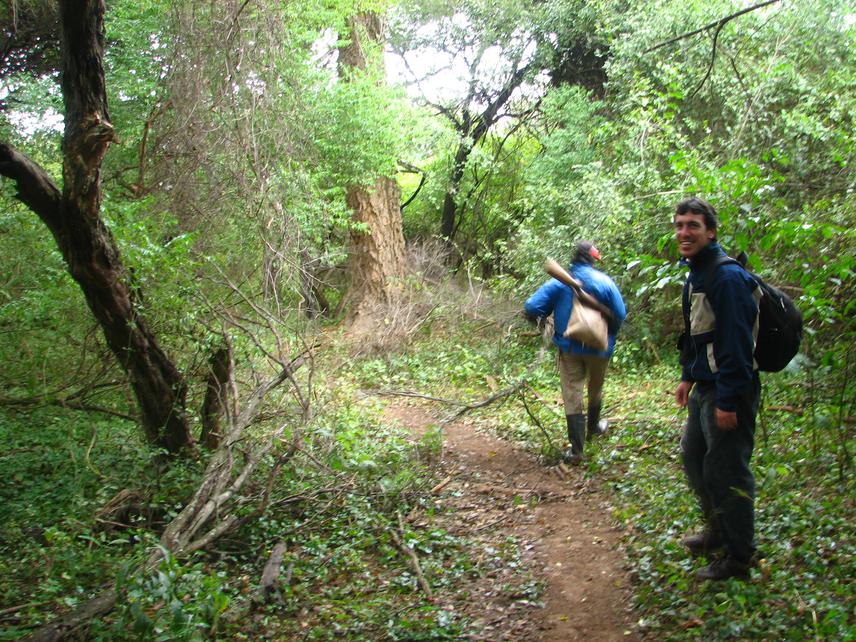Matías Enrique Mastrangelo
This work is aimed at improving our understanding of the human and social determinants of forest loss due to rapid agricultural expansion into tropical dry forests of Argentina.
Our work originates from the recognition that more social research is needed to better understand the impacts of agricultural expansion on biodiversity and to better inform planning and policy interventions in agricultural frontiers of developing countries. We considered that such research need is particularly acute in the context of dry forests in the Gran Chaco region –a highly threatened and understudied biome globally.

Engaging in ranchers´ activities during visits to their landholdings aimed at collecting data on attitudes and intentions towards forest conservation.
The work will consist on the collection and analysis of data from surveys to landholders as well as on the integration of social surveys and remote sensing. The contribution of the work to the conservation of forests in agricultural frontiers of the Argentine Chaco will be threefold. First, we will describe the stakeholders in the expansion of agriculture into native forests, to simplify and characterize the diversity of agents of forest change in the study area. Second, we will evaluate the psycho-social factors that influence landholder´s actions and intentions towards forest conservation. Third, we will construct spatially-explicit scenarios of forest cover change on the basis of landholders´ plans regarding the use of forests in their landholdings.
These objectives will be accomplished by means of two main activities. First, we will organize and run focus groups and individual interviews with landholders to identify salient environmental beliefs, perceptions and values that may have an influence on their land-use intentions and decisions. Second, we will design and deliver survey questionnaires to a larger sample of landholders (100-150). Surveys will be designed to collect data on: 1) the amount of land currently allocated to different uses (i.e. land-use decisions), in order to characterize production strategies and construct landholder typologies; 2) the salience of environmental beliefs, perceptions and values, in order to test their correlation with land-use decisions and intentions, and 3) future plans of landholders regarding the allocation of land to different uses (i.e. land-use intentions) under alternative policy/planning scenarios, in order to map land-use scenarios and evaluate the potential of policy/planning interventions to halt deforestation.